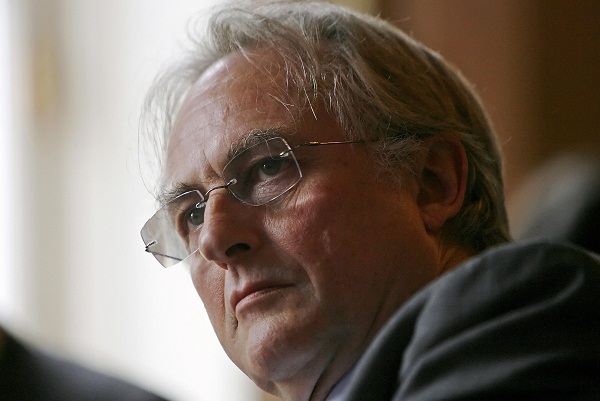There are many disheartening aspects to the war on cartoonists, one of which is the way that some people are so caught up in their own culture war that they can’t see the difference between their opponents and enemies. A small number of anti-racism activists still see the power + prejudice formula in a way that misses the woods for the trees, but I’m mainly thinking of Catholics like Bill Donahue who are so obsessed with atheism they’ve lost all sense of proportion.
More depressing, though, is the lack of critical thinking that greets discussion of Islam and violence. Take this article from the Daily Dot, for example:
‘Richard Dawkins took to social media to paraphrase Vladimir Lenin—tweeting that “some useful idiot will claim it [the Paris attacks] had nothing to do with religion”—before proclaiming, “No, all religions are not equally violent. Some have never been violent, some gave it up centuries ago. One religion conspicuously didn’t.” This is not the first time that Dawkins has argued that Islam, as a faith, deserves to be condemned—or, for that matter, that it is inherently more violent and dangerous than the other Abrahamic religions. While Dawkins is an outspoken critic of the other Abrahamic faiths, the impulse to single out Islam for opprobrium constitutes another form of othering.’
‘Xenophobia also plays a role in the attitudes toward Muslims. “Webster’s dictionary defines xenophobia as the ‘fear and hatred of strangers or foreigners,’” writes Douglas Kenrick of Psychology Today. “Unlike other phobias, this malady is not limited to a small clinical population, but is found all around us.”
‘Groups that aren’t perceived as “Others,” like Christians, are not held to the same standard when there are acts of violence motivated by extremist Christianity (such as hate crimes against homosexuals or bombings of abortion clinics). Because Muslims are perceived as ineffably different, there is a tendency to want each individual to be held accountable for the acts of the whole.’
The last Christian anti-abortion murder was in 2009, before that in 2001; in November 2014 alone jihadis killed 5,000 people. This hardly suggests that Christianity is being given an easy ride in the press or that we’ve ‘othered’ Islam.
Professor Dawkins is a great irritation to many on the Left because he’s a relentless employer of critical thinking and most people find such thought hateful; most famous was his apparently notorious tweet that Trinity College Cambridge had won more Nobel Prizes than the Islamic World.
Dawkins was posing the question of why, which is hugely interesting, but his observation was a hatefact; as the blogger Steve Sailer says, the biggest thought crime these days is ‘noticing’ – seeing patterns and trends, patterns that are interesting to anyone with any curiosity about humanity except the education professionals and journalists who try to downplay them. I’m not having a go at the Daily Dot writer, in particular, that’s just an example to hand; in fact so averse are most newspapers to hatefacts that one is genuinely surprised to find them in an article.
The most recent high-profile example of hatefact-avoidance was the debate about police shootings in America; numerous news sites published fatality rates by race, but no one in any mainstream newspaper on either side of the Atlantic (as far as I could see) actually pointed out that the demographics of the people getting shot match the demographics of the people who do violent crime and indeed who point guns at police offices – overwhelmingly young and male, disproportionately high black and low Asian. That would be a hatefact; it would also mean critical thinking.
Generalising is a useful tool for seeking out explanations as to why things are, which is the aim of political inquiry; once we can generalise we can narrow down the possibilities further. Noticing patterns is employed in all sorts of areas, from medicine to insurance to marketing. Why are 9 of the 10 most religiously oppressive states majority Muslim? Isn’t that a pattern worth exploring so that, you know, we can reduce religious oppression?
Saying ‘all religions are the same’ or ‘you can’t generalise’ likewise suggests a lack of critical thinking. What’s worrying is that because such issues make people so nervous, schools and universities, not to mention newspapers, actually discourage critical thinking on them.
The main reason I dread the political indoctrination my children will get at school is not that they will become Left-wing; I’d be more concerned they’d end up uninterested in current affairs, and besides which I’m fatalistic about political outlook, which probably has a large hereditary element (as does everything – arrgh, hatefact). I’m more worried that they’ll be taught not to think critically, in line with the prevailing mood, and will respond to challenging statements with ‘you can’t generalise because, you know, like, what are you frightened of?’
I hate the term political correctness because, like neoliberalism, it’s one no one self-describes as; it’s a bravery debate. But how else does one describe a mode of political thought that seeks to suppress critical thinking?







Comments